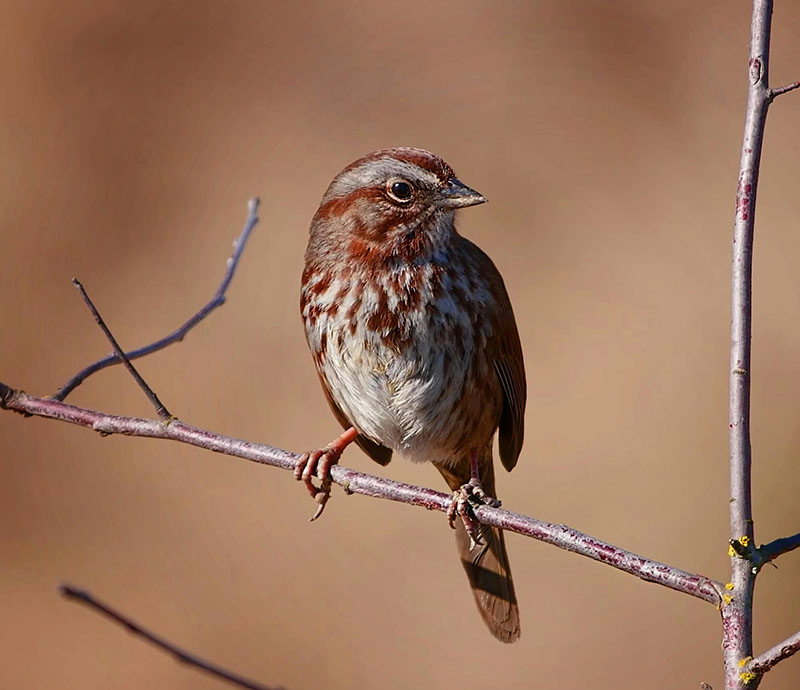House Sparrows. These birds are characterized by their compact, plump bodies, short tails, and sturdy beaks. Male house sparrows are often more brightly colored than females, with gray crowns, and black bibs on their throats. Females, on the other hand, have paler brown plumage with streaks and lack the bold markings of males.

Chickadee. One of the most endearing traits of the black-capped chickadee is its cheerful song, often described as a whistled "fee-bee" or a "chick-a-dee-dee-dee." These vocalizations are used for communication within their social groups and to establish territory during the breeding season. Very friendly birds that will eat seeds right from your hand.
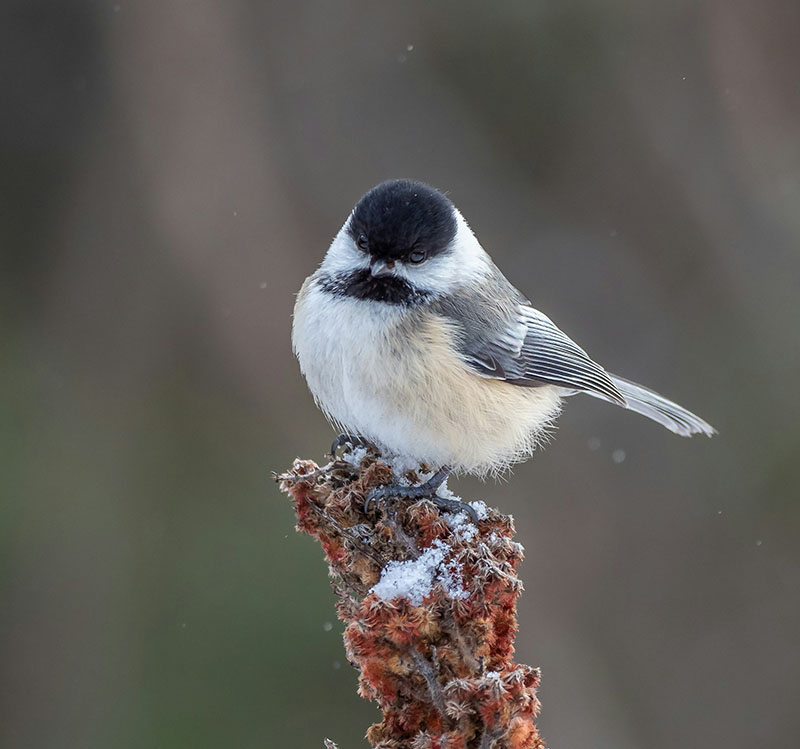
House Finch. Finches are known for their cheerful and melodious songs, consisting of a series of clear,
flute-like notes. They are commonly found in various habitats across North America, including
gardens, parks, and suburban areas.
These birds are primarily insectivorous but also
feed on berries and earthworms.
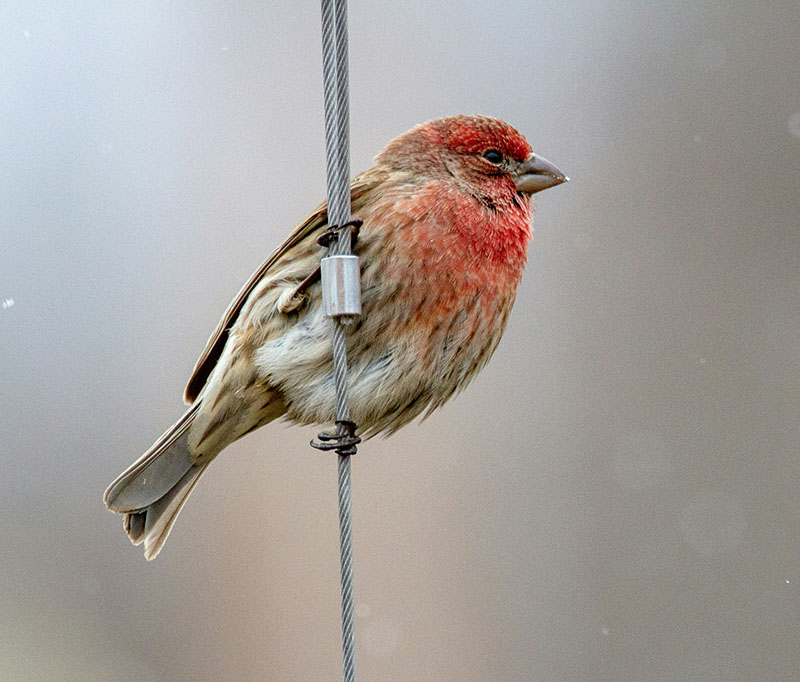
Dark-eyed Junco. Dark-eyed juncos are often found in woodland areas, forests, and shrubby habitats, where they forage
for seeds, insects, and berries.
They are known for their ground-feeding behavior, hopping and scratching
at the forest floor in search of food. You can expect too see many at once.
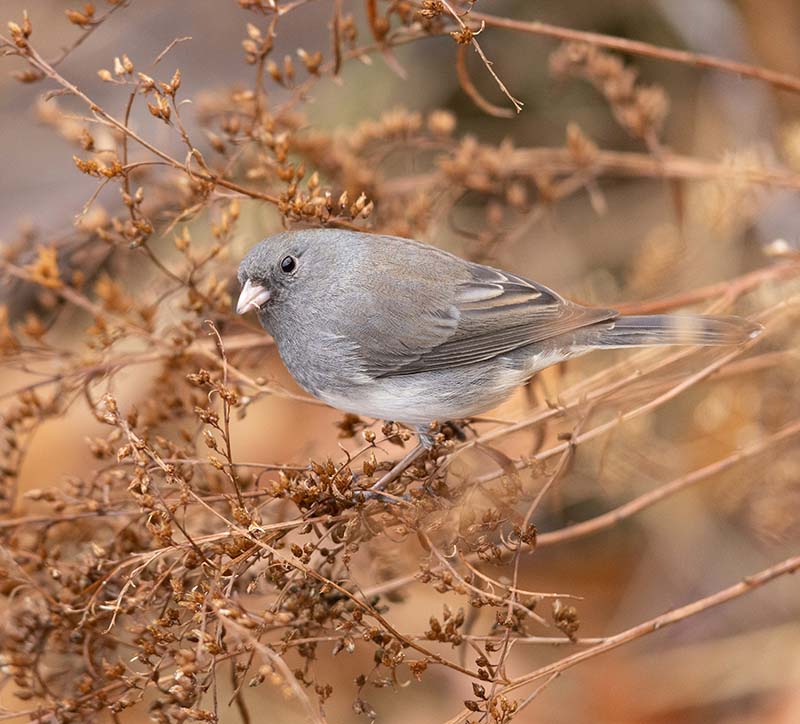
Nuthatch.
The White-breasted Nuthatch sporting a slate-blue back, a white face, and a white breast.
White-breasted Nuthatches
are skilled climbers, often seen moving head-first down tree trunks with agile and acrobatic movements.
Their vocalizations
include a nasal "yank yank" sound. They are frequent visiters of bird feeders, but do not stay for very long.
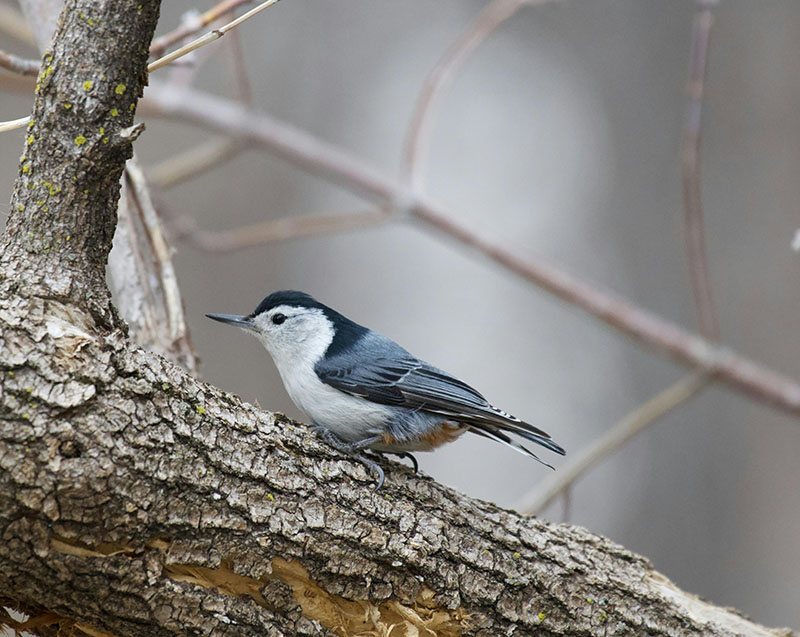
Song Sparrow. The song sparrow is a small passerine bird found across North America. Known for its melodious and varied song, this sparrow species is often heard before it is seen. Song sparrows are typically brownish-gray above with streaks on their breast, a white belly, and a distinct dark spot in the center of their breast.
